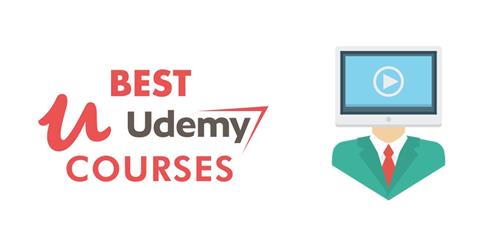C++ Software Design Principles & Best Practices – Hands–On

Free Download C++ Software Design Principles & Best Practices – Hands–On
Published 10/2024
MP4 | Video: h264, 1920x1080 | Audio: AAC, 44.1 KHz
Language: English | Size: 4.04 GB | Duration: 4h 36m
Start writing quality, clean code by utilizing the SOLID principles, + 8 more design guidelines + 6 more best practices
What you'll learn
Design efficient, robust, maintainable, extendable.. Software
Master the five SOLID Design Principles
Understand the four Object Oriented pillars
Understand UML Class Diagrams for visual code representation
Become familiar with six more Software System Design principles (YAGNI, DRY, KISS, LoD)
Start thinking beyond coding and get idea about 6 more Best Practices in Software Engineering
Requirements
Beginner experience with C++ and Object Oriented Programing
Description
ContentThis course focuses on the five SOLID principles, supported by a crash course in OOP and UML class diagrams, along with design guidelines such as Composition over Inheritance, Delegation, Code Reuse, and Programming to an Interface. Additionally, you will receive an overview of four other key software design principles (DRY, KISS, YAGNI, and the Law of Demeter), as well as six best practices (M1C2, Avoid Premature Optimization, the Boy Scout Rule, Occam's Razor, and the Principle of Least Astonishment). Together, these will equip you with the skills to start creating cleaner, more extensible, and more maintainable software.Who is this course for Beginner C++ developers to experienced C++ engineers, who want to bring their skills to the next level.Minimum PrerequisitesExperience with C++ language and Object Oriented ProgrammingResultsBy completing this course, you will expand your skill set and recognize more options when creating software. You will master the SOLID principles and apply them in your daily practice. I'll share a collection of real-world tips, tricks, and "aha" moments, drawn from over a decade of experience as a software engineer. When you encounter challenges, you will think in terms of clean code and know how to achieve both extensibility and maintainability in your codebase. Ultimately, you will become a much stronger and confident software engineer.Teaching StyleThe course follows a whiteboard style of teaching combined with media and visual explanations. The five SOLID principles will extend on top of each other to build a real-life application. You are provided with coding exercises for the five SOLID principles in Udemy's online coding exercise environment, which will allow You to face the problems and get hands-on experience on how to recognize and apply the design principles in a very close to real live codebase. The Udemy coding exercise environment already provides You with all you need. All the boilerplate code is already provided so You can focus on the problems that will yield the most learning experience.The course goalBy following the equation result = information + exercise, this course focuses on providing You with the right information and the right exercise environment. This is what I missed on my path, I spent far more time than necessary and missed valuable opportunities. That was the biggest trigger for why I created this course, why I want to share my experience with you, and help You to maximize your results while minimizing the time and effort you invest. Take a look at the free materials, if we align on the content, on the teaching style, I will be happy to go together with You, on our C++ journey.Wish You a bunch of focus and achievements!BestGoran
Overview
Section 1: Welcome & Agenda
Lecture 1 Welcome
Lecture 2 Agenda & How to get MAX from this coarse.
Section 2: Prerequisites: OOP, Design Principles & UML class diagrams
Lecture 3 Object Oriented Programing in C++ - crush coarse
Lecture 4 Virtual Tables & Runtime Polymorphism - Bonus
Lecture 5 GoF Design Guidelines
Lecture 6 Why we need UML Class Diagrams and what You need to know about it
Section 3: SOLID Design Principles
Lecture 7 Single Responsibility Principle
Lecture 8 Open Closed Principle
Lecture 9 Liskov Substitution Principle
Lecture 10 Interface Segregation Principle
Lecture 11 Dependency Inversion Principle
Lecture 12 4 more Desing Principles
Lecture 13 6 Best Practices in Software Development & in Live
Section 4: Thank You and What is next.
Lecture 14 Thank You Note & what's next. CA Feedback
Beginner C++ Developers to experienced C++ engineers, on their journey to improve.
Homepage
https://www.udemy.com/course/cpp-software-design-principles-best-practices-hands-on/Rapidgator
yzkks.C.Software.Design.Principles..Best.Practices..HandsOn.part2.rar.html
yzkks.C.Software.Design.Principles..Best.Practices..HandsOn.part1.rar.html
yzkks.C.Software.Design.Principles..Best.Practices..HandsOn.part5.rar.html
yzkks.C.Software.Design.Principles..Best.Practices..HandsOn.part3.rar.html
yzkks.C.Software.Design.Principles..Best.Practices..HandsOn.part4.rar.html
Fikper Free Links
yzkks.C.Software.Design.Principles..Best.Practices..HandsOn.part4.rar.html
yzkks.C.Software.Design.Principles..Best.Practices..HandsOn.part3.rar.html
yzkks.C.Software.Design.Principles..Best.Practices..HandsOn.part5.rar.html
yzkks.C.Software.Design.Principles..Best.Practices..HandsOn.part2.rar.html
yzkks.C.Software.Design.Principles..Best.Practices..HandsOn.part1.rar.html
No Password - Links are Interchangeable
